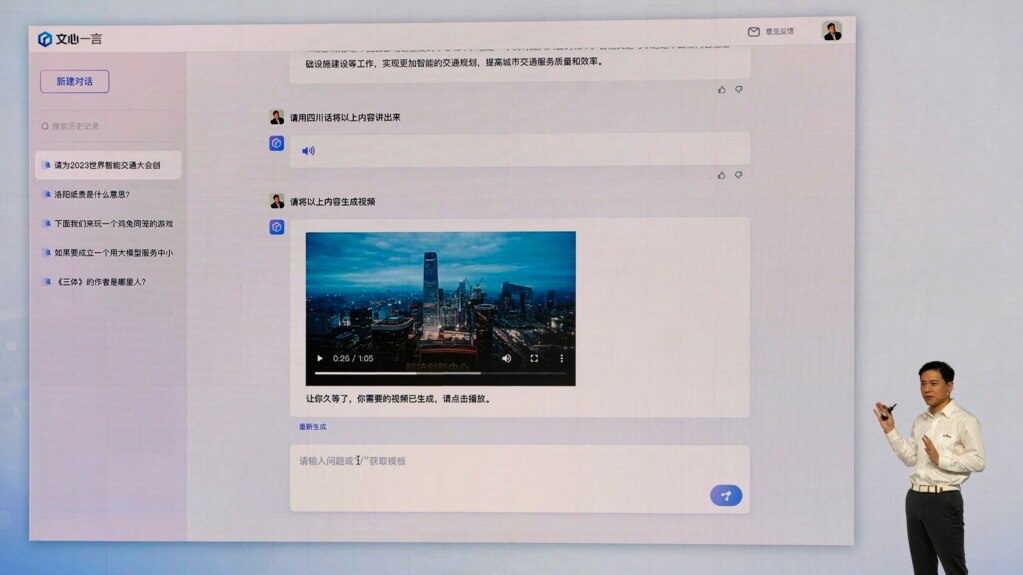Several Chinese companies have launched government-approved artificial intelligence (AI) chatbots to the public.
The launches included chatbots from major technology companies as well as several smaller organizations. The companies include Baidu and SenseTime, an AI company based in Hong Kong.
The releases are seen as an attempt by the Chinese government to approve homegrown AI offerings in an effort to effectively compete with American-based developers. Unlike other countries, China requires companies to provide security plans and receive clearance before releasing products to the general public.
The Chinese chatbots are similar to the ChatGPT system. ChatGPT was introduced by Microsoft-backed OpenAI late last year. ChatGPT and other so-called chatbots have demonstrated the ability to lead human-like discussions and produce complex writing based on short, written commands. Such tools are also known as “generative AI” or “large language models.”
Baidu – China’s major online search provider – said in a recent statement that its chatbot, called Ernie Bot, was now fully available to the public. SenseTime released a similar statement announcing the launch of its SenseChat chatbot.
Chinese media reported a total of 11 companies had received approvals from the government. These included TikTok owner ByteDance and media company Tencent Holdings. Those companies did not release information about their AI plans.
Baidu's chief executive is Robin Li. Li recently said that, by making Ernie Bot widely available, Baidu will be able to collect large amounts “of valuable real-world human feedback" from users. The data, Li said, would be used to further improve the chatbot.
Being the first to market in China is considered important in the country's highly competitive internet industry. Baidu's Ernie Bot rose to the top of the free app group on Apple's App Store in China immediately after the company’s announcement.
"I think the ones that got approved have an early mover advantage to be able to fine-tune their product faster than competitors," said Kai Wang, an industry expert at Morningstar, an investing research group.
The approvals were widely expected after China published a set of temporary rules last month aimed at covering chatbot products meant for the public.
In the past, Chinese companies were only permitted to carry out small public tests of AI products. But with the new rules, companies widened their AI offerings and have included more product elements and expanded marketing efforts. Government approval is not needed for Chinese products targeting businesses.
Shawn Yang is with the U.S.-based business advisory company Blue Lotus Capital Advisors. He said the Chinese government's latest move to approve AI products could cause consolidation in the industry.
"Many people were rushing into the large language model business," Yang said. "But the industry may soon consolidate. Only those with data and tech capability will be able to push forward."
Reporters from the French press agency AFP carried out tests on the Ernie Bot. The chatbot easily answered general questions such as "What is the capital of China?" and "Do you have any hobbies?"
But on some sensitive subjects, Ernie Bot did not give such clear answers. For example, AFP asked the chatbot to provide information on China's bloody crackdown on pro-democracy protesters at Beijing's Tiananmen Square in 1989. Ernie Bot answered, "Let's change the (subject) and start again."
Tiananmen is an especially sensitive subject in China. The government blocks online information and discussion about the event.
When asked about Taiwan, the self-ruling island that China claims as its territory, the Ernie Bot offered a longer answer. "Taiwan is part of the sacred territory of the People's Republic of China," it said. The chatbot added, "China's sovereignty and territorial integrity cannot be violated or divided."
Then, the Ernie Bot added, "Let's talk about something else."
I’m Bryan Lynn.

